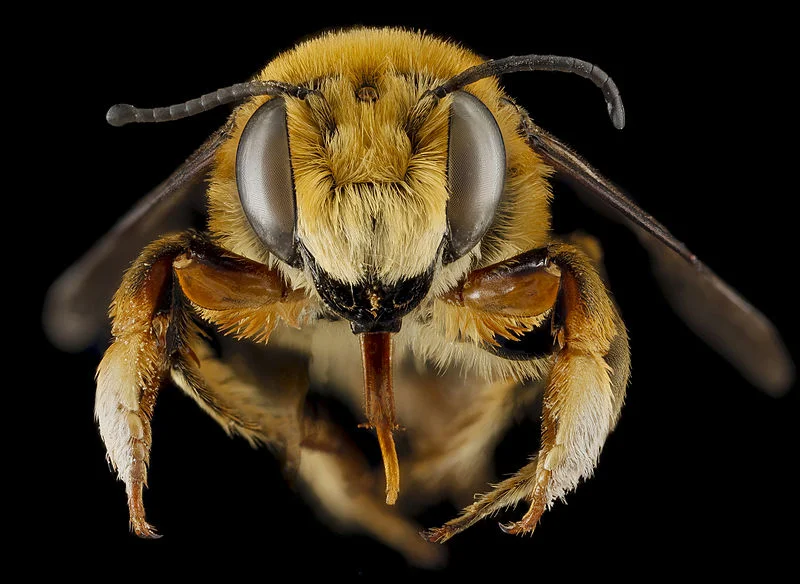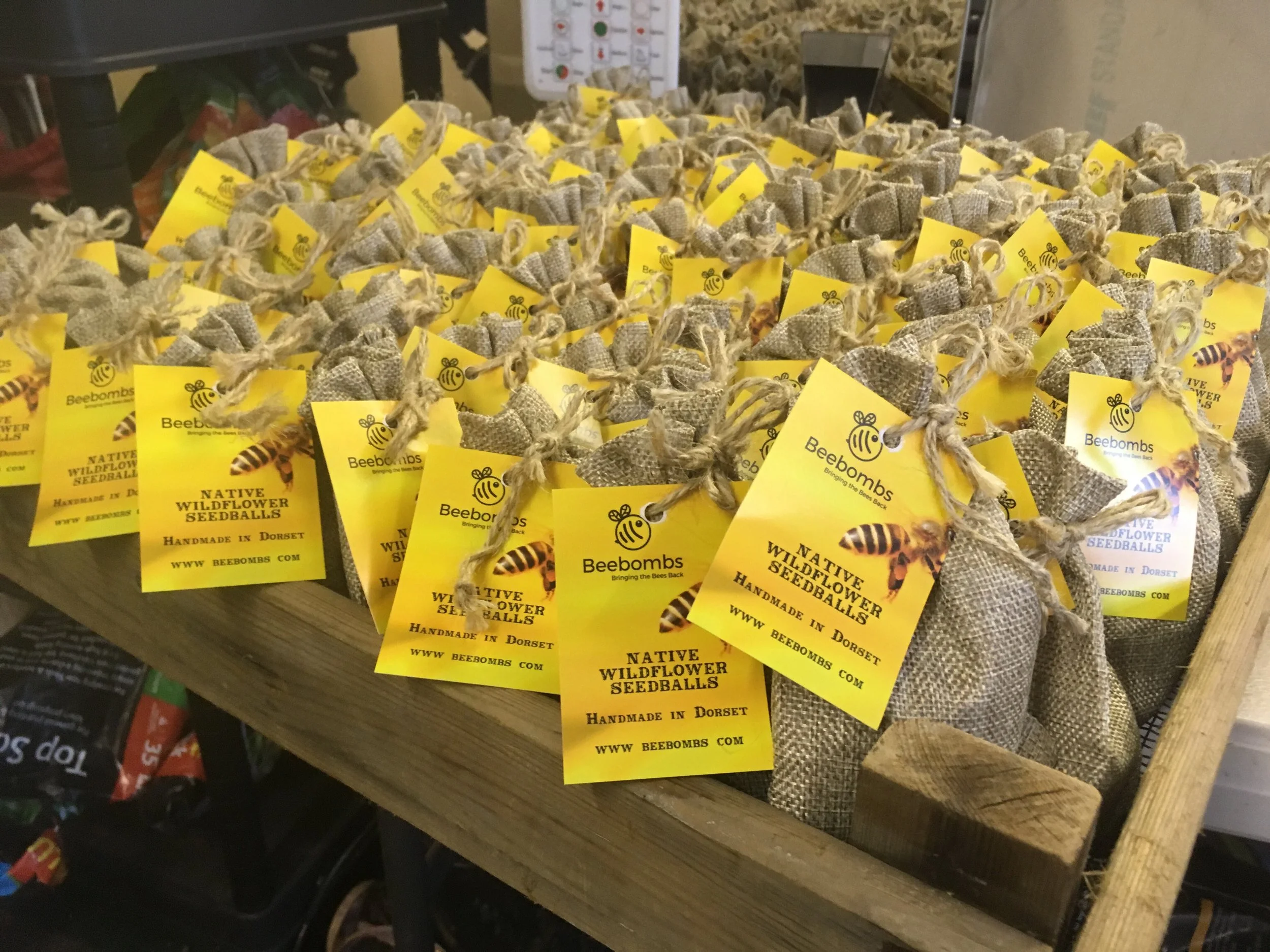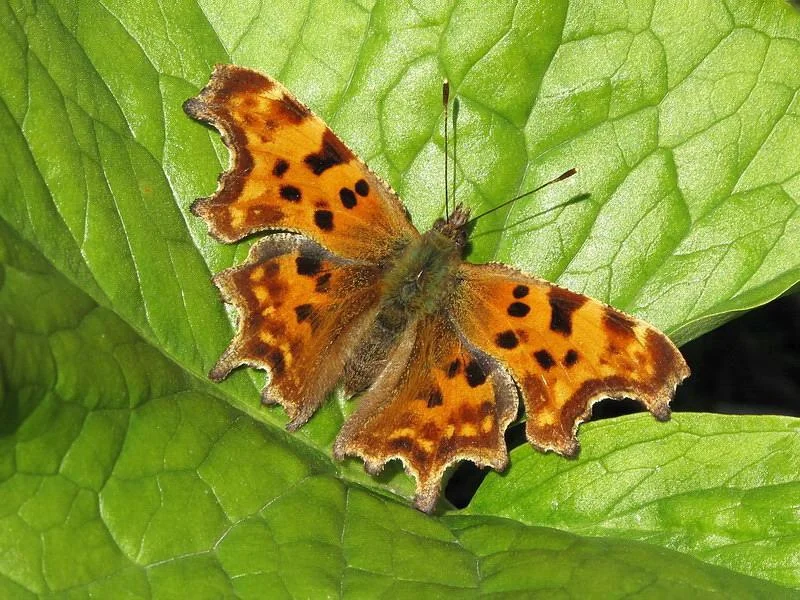A showroom for all the incredible blooms we’ve had so far. These pictures have all been sent in by brilliant Beebombers all over the UK #bringthebeesback
Read MoreBeebombs making messy fun day at Joy Cafe in Churchill Gardens, Boscombe. Wednesday 1st August at 1pm
Read MoreFirst spotted in the UK in only 2001. It seems the Tree Bumblebee arrived here under it’s own steam. It has spread rapidly throughout the UK, has not harmed local native bee populations and is a good pollinator so a welcome addition
Read MoreDelicate and skilful, the Leaf-Cutter Bee is an incredibly interesting genus of bee that contains nearly 1500 recognised species. Some pulp the leaves and plant material to create their nests, many neatly cut the material directly from the plant.
Read MoreThe Early Bumblebee or Early Nesting Bumblebee get's it's common name from the fact it can be seen even in February. It lives in colonies with queens and workers with the queen keeping order through aggressive displays rather than pheremones as is more common.
Read MoreThe Holly Blue is found throughout the Southern half of the British Isles and all through Ireland. It's wildly fluctuating but cyclical numbers are thought to be down a parasite. It's beauty is barely rivalled in my opinion and it needs our support
Read MoreJob offered at Beebombs. Flexible hours, relaxed environment - have fun whilst doing good.
Read More
The Ashy Mining Bee is particularly well named. It's distinctive grey colouring and ground nesting behaviour make it a great little pollinator to look out for in your garden. In flight from March until mid June.
Read MoreThe Comma butterfly is widespread throughout the woodlands of the UK. It's distinctive but well camouflaged wings are a marvel of evolution and it is actually increasing it's range due to climate change.
Read MoreWhat is happening to the bees and how will affect humans. The Beebomb Bee-log takes a look at the numbers around bee decline throughout the world.
Read MoreThe Western Bee Fly, often called the Bomber fly, is an important pollinator and a vital cog in the wheel of British bio-diversity. The Beebomb Bee-log takes a closer look at the fascinating and ingenious behaviour of this relatively un-heralded garden visitor.
Read MoreThe Brimstone Butterfly is one of Britain's institutions. It's beautifully camouflaged wings can be seen on wetlands and in woodlands throughout the England and Wales. Although still common, it's distribution has declined by 43% since the 1970s.
Read MoreThe Wool Carder Bee. A really interesting pollinating pal. The European Wool Carder Bee is relatively well distributed through Southern UK. They demonstrate some fascinating nesting behaviour, gathering the hairs on small leaves which is how they get their name. Let's help #bringthebeesback
Read MoreThe Buff-tailed Bumblebee. One of the UKs most recognisable pollinators and the species of bee most people visualise. Abolsutely vital to Bio-diversity in the UK and a beautiful, benign and busy visitor to any garden. The Beebomb bee-log takes a closer look at this under-appreciated insect. Let's #bringthebeesback
Read MoreBeebombs helped bring back hundreds of acres of wildflower meadow in 2017 after starting our project in November. If we can continue this trend, we will help #bringthebeesback
Read MoreThe Ladybird is an invaluable visitor to any garden and many native sub-species are in serious decline in the UK. Beebombs help redress the wildflower habitat loss Britain has suffered and need no gardening. Native UK Wildflower Seedballs.
Read MoreThe Old World Swallow Tail can be found throughout the world but is critically endangered in the UK and can now only be spotted in areas of Norfolk. Beebombs help butterflies and all pollinators, as well as helping to #bringthebeesback
Read MoreThe Long Horned Bee is one of the most endangered pollinators in the UK. Needing a large area of wildflower habitat, the Long Horned Bee has suffered greatly from the loss of wildflower habitat in the UK over the last 70 years.
Read MoreBeebombs will be heading out on the New Year Plant Hunt and would love to meet up with other enthusiasts. It's a great initiative that really helps scientists understand whats happening to our wildflower habitat and what we all need to do to #bringthebeesback
Read MoreBeebombs make perfect wedding favours and ensure your guests remember your wedding every time they look in their garden or flowerpots and every time they see a bee or other pollinator. They'll also go home knowing they have the means to help the Biodiversity of Great Britain and to #bringthebeesback
Read More




















